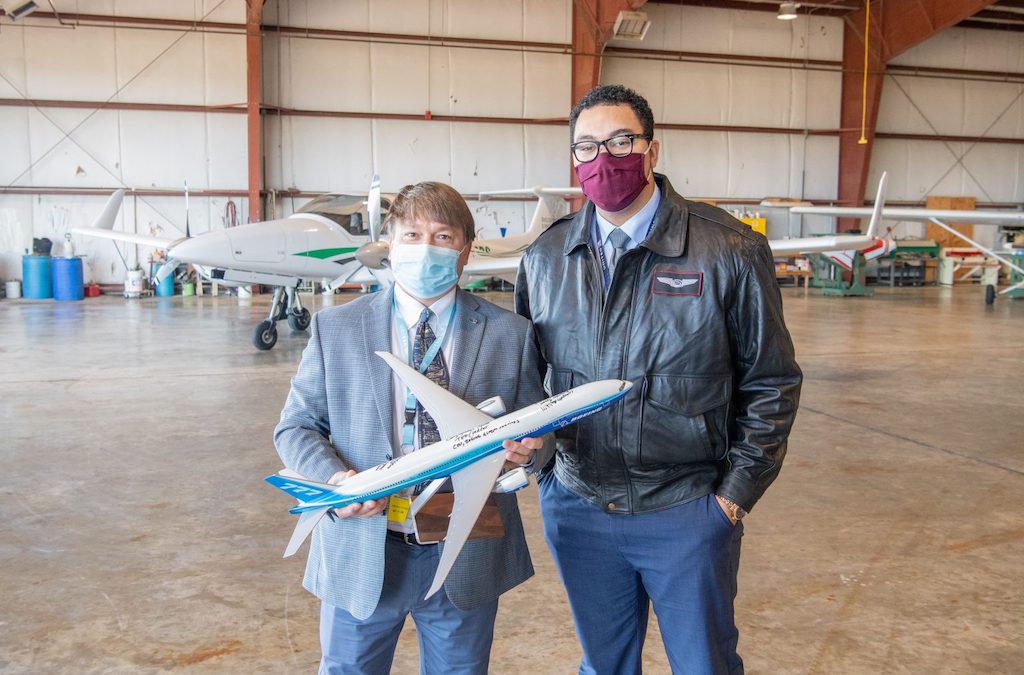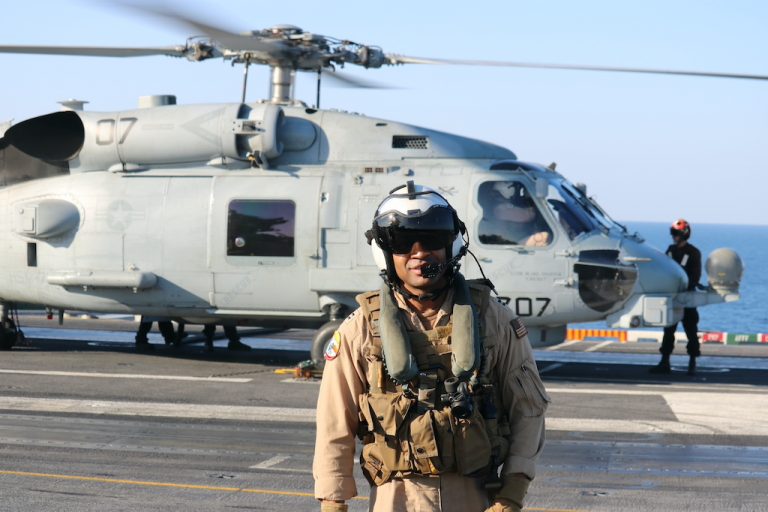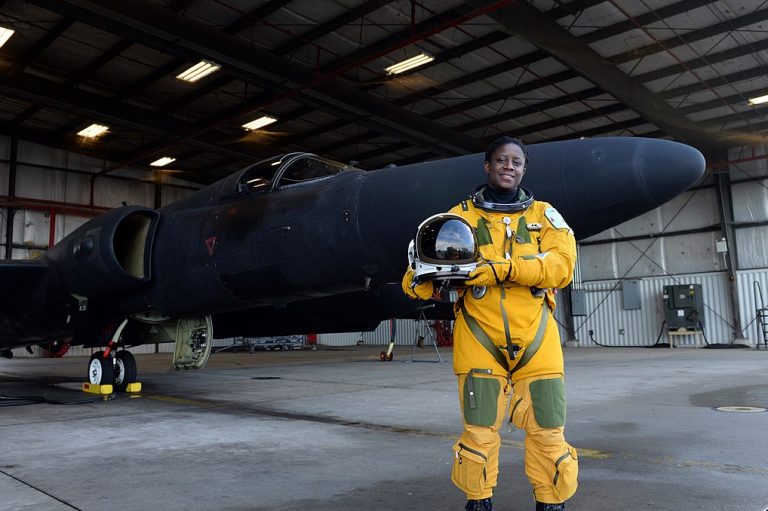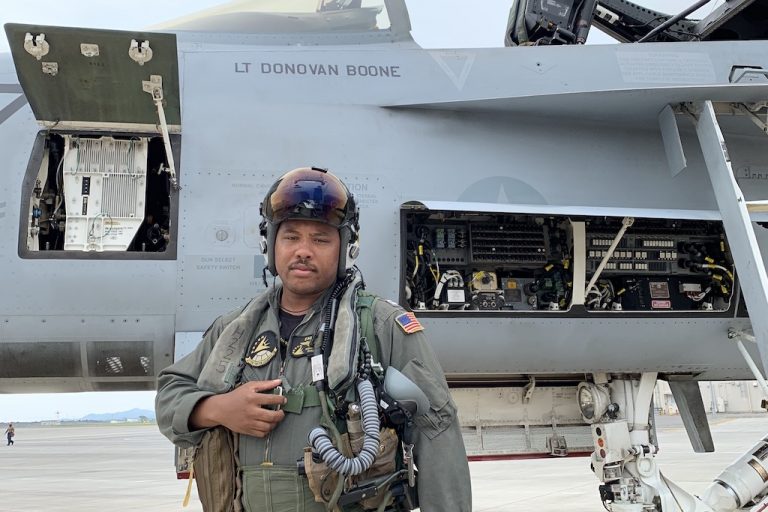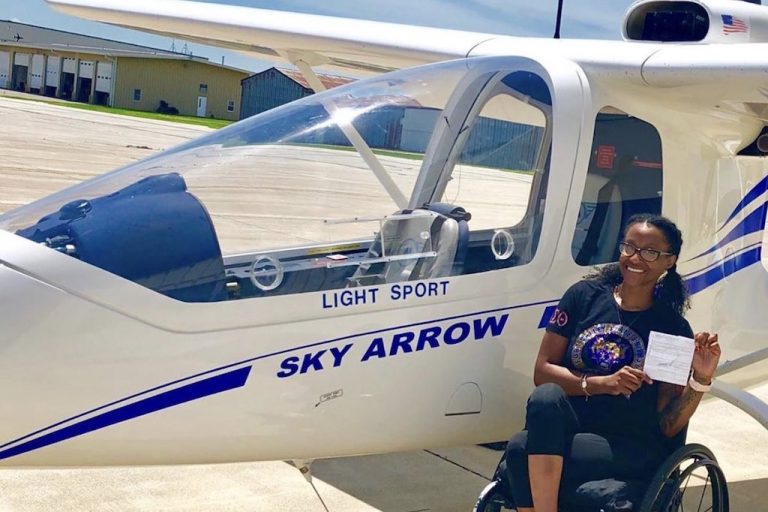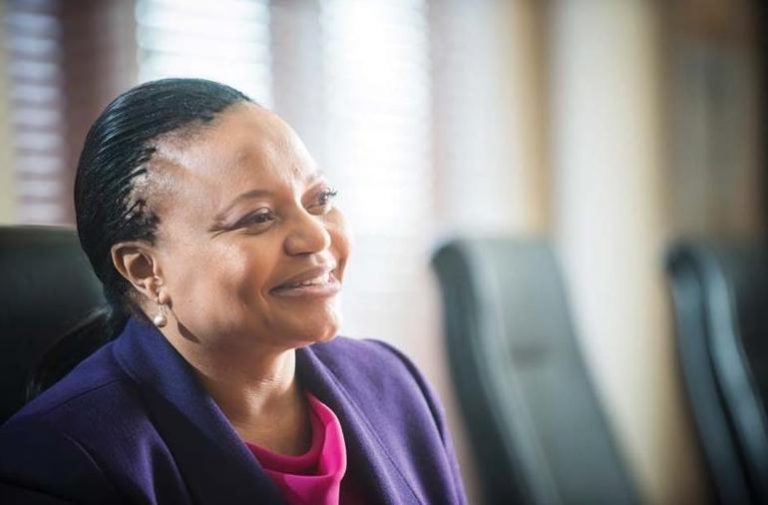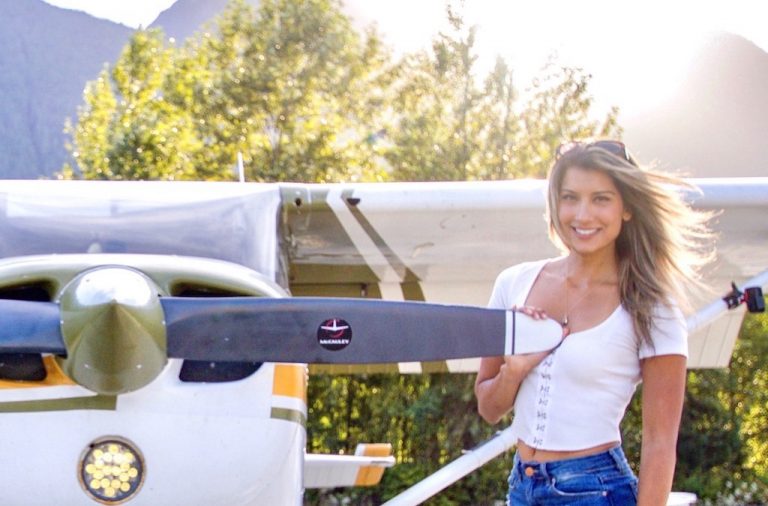Malik Sinegal
Malik Sinegal took his first airplane flight as a teen when a local volunteer offered to take him up for a flight lesson as part of the Experimental Aircraft Association (EAA) Young Eagles program. But, he says with a laugh, “there was no way my grandma was going to allow me to get into an airplane… let alone try flying it!” Fortunately, Sinegal was persistent, so he quietly snuck out of the house and headed to the airport. From his first flight, he was hooked.
Eventually, his grandma came around. At fifteen, he started flight training in pursuit of an airline career. Today, at just twenty-three years old, Sinegal has graduated from college, worked as a flight instructor teaching others how to fly, and served as a First Officer on an Embraer regional jet. He is also the world’s youngest Boeing 777 pilot, earning a type-rating earlier this year thanks to lots of hard work and a training scholarship.
Growing up in Mississippi, becoming a pilot wasn’t really on the radar. When he goes back home and sees friends, some still tell him “I didn’t even know that black people could be pilots… I’ve never seen one.” While aviation is becoming more diverse, it is a slow shift, and the more “traditional” image of a pilot still reigns supreme in the imaginations of many Americans.
As a new pilot in training, Sinegal noticed that he and his minority peers had to work harder than other aspiring pilots. “It’s almost like you’re being held to a higher standard through the whole thing.” While certification standards establish minimum requirements throughout the training process — theoretically without bias — Sinegal and his peers often found that they needed to perform well beyond the standards to pass the same evaluation that other applicants passed by simply meeting the minimums. “I was the first [black pilot] to graduate in fifteen years from my school”, says Sinegal.
But he hopes that will change over time. Sinegal continues to actively mentor former students and new pilots. And, though still young himself, he’s adamant that anyone can be a mentor. “You’re never too young to start trying to give back. If you wait, you’ll never give back, because you’ll never feel prepared enough”. He plans to continue teaching and inspiring the next generation of pilots so that their experience is better than his. Even though he works in the airlines now, Sinegal continues to stay connected with his former students, supporting them through the flight training process.

